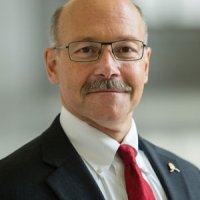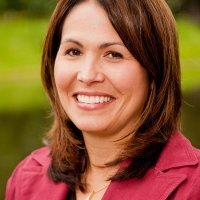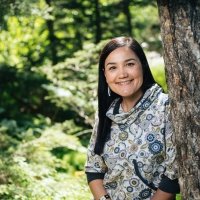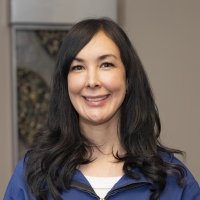Realities of Life in the 49th State
COVID has highlighted and further exacerbated the challenges faced by Indigenous communities everywhere, particularly in Alaska. The 49th state is the largest and least densely populated in the United States. Self-sufficiency and the ability to hunt and fish are critical, especially considering the harsh winters and remoteness of many Alaska Native villages. Regardless of challenges, Alaska Native people are proud of their traditions and ways of life.
In this discussion, multiple generations of Alaska Native voices shared their stories of life in Alaska, and how their communities and villages have prospered despite the many barriers they face. The event explored the unique role Alaska Native Corporations, created by the Alaska Native Claims Settlement Act, play in providing critical services, resources, and economic benefits to Indigenous communities throughout the state.
Speaker Quotes
William L. Iggiagaruk Hensley
“We made our livelihood not really understanding that we were in for some huge changes in our lifetime. Those changes have come to pass, and Alaska and our villages are not what they used to be. But still, the dependence on the land and the sea life and the food from the oceans are still critical to the well-being of our people.”
Fifty years ago, “We had absolutely no interest in corporations, per se. We had absolutely no idea where we were going to end up. All we knew was that we were fighting 200 years of American history of taking Native lands. And then the methodologies of compensation were really completely inadequate. I mean, it was laughable. The whole Court of Claims process and the Indian Claims Commission process took many, many years, and you ended up with just a few cents an acre and no land. And so we knew that if we were going to end up with any land whatsoever, we had to change 200 years of American history.”
“Patuk was talking about maintaining her sense of identity and Iñupiaq spirit and connection to the people. Well, needless to say, colonization is all about trying to destroy that. And of course, that’s something that we never fully understood, you know, with the whole boarding school system that kind of beats your language out of you, beats your family connections. So when we got the corporation, we actually were kind of — we weren’t celebrating. Despite the fact that five years of battle, every day — with one hand tied behind our backs, so to speak — when we got that settlement, it was a phenomenal accomplishment, in retrospect, in terms of our national history, but we were almost crying because we knew what we were giving up.”
“The goal of the corporation is not the bottom line in itself. It is just a tool. Just a tool, actually, just like the tribal system is a tool. It’s a white man’s idea about how we should be organized, right? And so, the idea was to use that tool to uplift our people. And that’s what we’ve been trying to do in our villages and in our regions — put our spirit and our values into it and use it not as an end but as a means to uplifting our people. So that’s my message.”
Shauna Hegna
“It’s a balance that every Alaska Native person deals with everyday, right? How do we maintain our cultural — Alutiiq, in my case — values, and then how do we also be successful in mainstream American corporate culture? I think at Koniag, and at all Alaska Native corporations, we have core values, and those core values are rooted in our cultural values.”
“When we talk about COVID-19’s impact on food insecurity, I really invite you to put your mindset back to where you were at in like April of last year, right? So when people in cities like Anchorage and Washington, D.C. were terrified to get in their personal cars and drive to the grocery store for fear of contracting COVID and then bringing it home to their families —in our communities, there was no way to social distance. There was no way to people to get on an airplane and go and safely buy groceries.”
“I think we are facing unique challenges. We’re not the only people who have challenges as a result of COVID. But I think the most important thing about COVID is going to be the economic recovery for Alaska. The New York Times recently produced a report that showed that Alaska is the hardest hit economically in the nation from COVID. So we have a huge uphill battle to recover, and I think Alaska Native corporations are really going to be critical in that recovery over the long term.”
“First, in 50 years from now, we should own our homelands. Second, I would look for self-sufficient people and self-sufficient communities, and I think our Alaska Native corporations are going to be really critical partners in that effort. And third, but certainly not least — knowing who we are and where we’re going. Also, [being] hopeful that our friends in the lower 48, whether they be tribes or members of Congress or their staffers — that they have an understanding about what makes Alaska unique and why our people are different.”
Patuk Glenn
“Because both of my parents worked, I was raised, in many ways, by PBS. I was raised by Nickelodeon, VH1, MTV. But I’ll tell you what — watching this various TV programming, learning about the world outside of me — I never saw anything in the 80s and 90s that I could identify with. I never saw anybody that looked like me, talked like me or what was in line with our values. I was, in many ways, I questioned my own self-identity as to who — wait, who am I? I’m an American? I’m an Iñupiaq person? So that led me on this path of self-discovery of learning more about myself, my family, my community, my region, my state, and how all of the world affects that or doesn’t affect that.”
“Our Indigenous people are no stranger to food insecurity. Many times, people will say that we are a feast or famine type of culture. Honestly, we rely so much on our leadership — folks like Willie, who have helped paved the way to create these organizations so that we may flourish, so that we may use this outside system for our benefit. But, of course, there are still going to be some people that are struggling, and so, it is so very important to understand all of the organizations that serve Alaska and trying to find the best path to work together to help our people.”
“2020 actually was very good in terms of subsistence. However, I want to remind all of the listeners that at one point, whaling — subsistence whaling — was illegal for our region. The International Whaling Commission put a ban on all whaling activities in the 70s. By way of policy, that could have wiped us out if we had not had the means and the organizations to fight this ban and carry out what we believe is our God-given right to live, survive, and thrive in one of the harshest climates in the world.”
Moderators

US Ambassador-at-Large for Arctic Affairs; Former Chair, US Arctic Research Commission

Panelists


Hosted By

Polar Institute
Since its inception in 2017, the Polar Institute has become a premier forum for discussion and policy analysis of Arctic and Antarctic issues, and is known in Washington, DC and elsewhere as the Arctic Public Square. The Institute holistically studies the central policy issues facing these regions—with an emphasis on Arctic governance, climate change, economic development, scientific research, security, and Indigenous communities—and communicates trusted analysis to policymakers and other stakeholders. Read more


Environmental Change and Security Program
The Environmental Change and Security Program (ECSP) explores the connections between environmental change, health, and population dynamics and their links to conflict, human insecurity, and foreign policy. Read more


History and Public Policy Program
A leader in making key foreign policy records accessible and fostering informed scholarship, analysis, and discussion on international affairs, past and present. Read more


